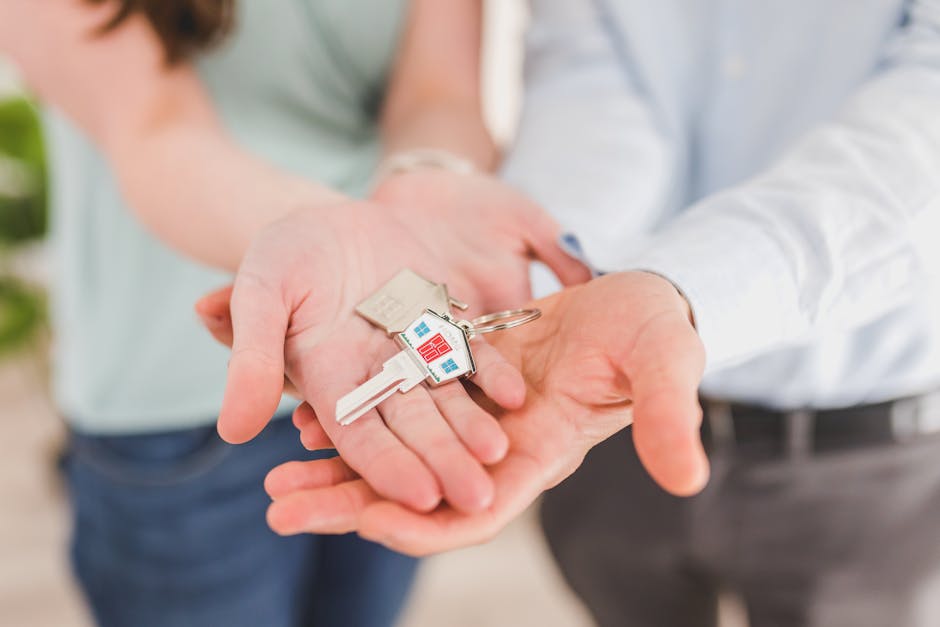The Future of Drone-Enhanced Property Marketing
With the rapid advancements in technology, the landscape of property marketing is constantly evolving. One of the most innovative and impactful tools transforming the real estate industry is drone technology. Drones, also known as unmanned aerial vehicles (UAVs), have revolutionized the way properties are marketed, providing stunning aerial views, immersive virtual tours, and enhanced visual content. In this article, we will delve into the future of drone-enhanced property marketing, exploring its current applications, potential future developments, and the implications for the real estate industry.
The Rise of Drones in Real Estate

In recent years, drones have become increasingly popular in the real estate sector for capturing high-quality aerial footage of properties. Real estate agents and property developers are utilizing drones to showcase properties from a unique perspective, highlighting key features such as location, size, and amenities. By using drones, real estate professionals can create compelling visual content that attracts potential buyers and sets properties apart from the competition.
One of the main benefits of using drones in property marketing is the ability to provide prospective buyers with a comprehensive view of the property and its surroundings. Aerial footage captured by drones offers a more immersive experience compared to traditional photography or video tours, allowing potential buyers to get a better sense of the property’s layout, design, and overall appeal.
The Future of Drone Technology

As drone technology continues to advance, the future possibilities for drone-enhanced property marketing are limitless. In the coming years, we can expect to see drones equipped with advanced features such as artificial intelligence, 3D mapping capabilities, and augmented reality integration. These enhancements will further enhance the way properties are marketed, providing a more interactive and personalized experience for buyers.
One of the most exciting developments in drone technology is the use of AI-powered drones for property inspections and appraisals. These drones can autonomously scan and analyze properties, providing real-time data on structural integrity, energy efficiency, and potential maintenance issues. This not only streamlines the property valuation process but also ensures accuracy and efficiency in assessing property conditions.
The Impact of Drones on Property Marketing

The integration of drones in property marketing has had a profound impact on the real estate industry, changing the way properties are showcased and marketed to potential buyers. Drones have become an essential tool for real estate agents and developers looking to stand out in a competitive market and attract discerning buyers.
One of the key advantages of using drones in property marketing is the ability to reach a wider audience. By providing captivating aerial footage and virtual tours, real estate professionals can engage with buyers who may not be able to visit the property in person. This is particularly beneficial for international buyers or those looking to invest in properties from a distance.
The Legal and Ethical Considerations of Drone Use in Real Estate

While drones offer numerous benefits for property marketing, their use is not without challenges. One of the main concerns surrounding drone technology in real estate is the legal and ethical implications of drone use. As drones become more prevalent in the industry, regulations and guidelines are being put in place to ensure the safe and responsible use of drones in real estate.
Real estate professionals must adhere to strict regulations regarding drone operations, including obtaining proper licensing, following airspace restrictions, and respecting the privacy rights of individuals. Failure to comply with these regulations can result in fines, penalties, and legal consequences for both the drone operator and the real estate agent.
The Future of Virtual Reality and Augmented Reality in Property Marketing
Virtual reality (VR) and augmented reality (AR) are becoming increasingly integrated into property marketing, offering immersive and interactive experiences for buyers. By combining drone technology with VR and AR, real estate professionals can create virtual property tours that simulate the experience of walking through a property in person.
With VR and AR technology, buyers can explore properties in a 360-degree virtual environment, interact with virtual furnishings, and visualize potential renovations or design changes. This level of interactivity and customization provides buyers with a more engaging and informative experience, leading to faster decision-making and increased sales conversions.
The Environmental and Sustainability Benefits of Drone Use in Real Estate
Aside from their marketing advantages, drones also offer environmental and sustainability benefits for the real estate industry. By using drones for property inspections, surveys, and monitoring, real estate professionals can reduce the need for traditional methods that are more resource-intensive and environmentally harmful.
Drones have a lower carbon footprint compared to manned aircraft, vehicles, and equipment, making them a more eco-friendly option for aerial imaging and data collection. Additionally, drones can access hard-to-reach areas without causing damage to the surrounding environment, minimizing disturbances to wildlife habitats and ecosystems.
Common Misconceptions About Drone-Enhanced Property Marketing
Despite the numerous benefits of using drones in property marketing, there are some common misconceptions and myths surrounding their use. One of the most prevalent misconceptions is that drones are prohibitively expensive for small real estate agencies or individual agents. However, the cost of drone technology has decreased significantly in recent years, making it more accessible and affordable for real estate professionals of all sizes.
Another misconception is that drones are difficult to operate and require specialized training. While operating a drone safely and legally does require training and certification, many real estate professionals find that the learning curve is manageable, especially with the availability of online training programs and resources.
Conclusion
As we look towards the future of property marketing, it is clear that drones will continue to play a significant role in shaping the industry. The integration of drone technology with AI, VR, and AR will revolutionize the way properties are marketed, providing immersive, personalized, and engaging experiences for buyers. Real estate professionals who embrace drone-enhanced marketing will have a competitive edge in attracting buyers, increasing sales, and staying ahead of the curve in a rapidly evolving market.
Whether it’s capturing stunning aerial views, conducting property inspections, or creating virtual tours, drones offer endless possibilities for enhancing the visual content and marketing strategies of real estate professionals. By staying informed, adapting to new technologies, and following best practices, real estate agents and developers can leverage the power of drones to showcase properties in a dynamic and innovative way.
To wrap things up, the future of drone-enhanced property marketing is bright, promising, and full of exciting opportunities for the real estate industry. By embracing the potential of drone technology and incorporating it into their marketing strategies, real estate professionals can elevate their properties, engage buyers, and drive success in a competitive market.




